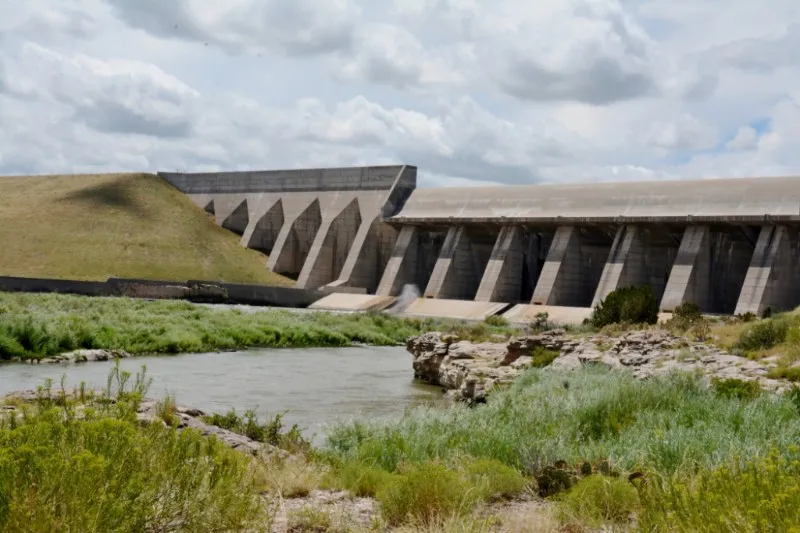
Daily Audio Newscast Afternoon Update - May 8, 2025
© INDU BACHKHETI - iStock-1336427297
News from around the nation.
Activists arrested in Columbia library takeover; Howard University program addresses Black male enrollment crisis; Black maternal health remains focus of PA lawmakers; Old laws, big impact: the origin of Alabama's habitual offender law.
Transcript
The Public News Service Thursday afternoon update.
I'm Mike Clifford.
About 80 pro-Palestinian demonstrators arrested on Wednesday after occupying part of the main library and Columbia University's campus in an attempt to rekindle the protest movement that swept the campus last spring.
That for the New York Times.
They report the protesters wearing masks and keffiyehs had burst through the security gate shortly after 3 p.m. and hung banners in the soaring main room of the Butler Library's second floor, renaming the space the Basil Al-Arraj Popular University.
Outside the library, crowds gathered, leading to a chaotic scene.
By around 7 p.m., Columbia administrators called the NOPD back to campus for the first time since the occupation of Hamilton Hall in April of 2024.
And as historically black colleges and universities grapple with declining black male enrollment, Howard University's Kings of Campus initiative is working to reverse the trend through mentorship, exposure and addressing systematic barriers.
Now in its third year, the program targets middle and high school students in partnership with school districts to build a pipeline for young black men to see themselves in higher education with Howard's black male population at 19 percent.
Calvin Hadley is Howard's assistant provost for student engagement and academic partnerships.
He says the issue needs to be addressed swiftly.
We are really a clarion call for the world, right?
Because there's a significant concentration here and we're able to fill this a little bit more, but it's really just illuminating what is a national issue.
Howard's model offers a blueprint for Mississippi where HBCUs such as Jackson State and Alcorn State face similar challenges.
I'm Tramell Gomes.
And with Mother's Day coming up, some Pennsylvania lawmakers are backing a set of bills that could help improve maternal health.
The Black Maternal Health Caucus introduced the updated PA Mom the Bus 2.0 package in April, focused on tackling disparities in maternal health care by improving access to services.
Black women in the state are nearly twice as likely to die from childbirth complications and state representative Latasha D. Mays says 93 percent of maternal deaths are preventable.
All the bills are for all moms and because we know we fix and address and take on maternal mortality and morbidity for black moms, we solve it for every mom and birthing person in the Commonwealth.
For Public News Service, I'm Shantia Hudson.
And next to Alabama, where advocates are calling for a closer look at the origins of the Habitual Felony Offenders Act, a state law which adds mandatory prison time for people with prior convictions.
Daniel Lohrer, an associate professor at City University New York's School of Law, says the policy stems from a belief that some people are more likely to be criminals.
There was a belief that people who committed crimes multiple times must have criminality in their genes.
A recent report by the Sentencing Project connects these policies to eugenicist beliefs, suggesting that they target certain racial groups and attempt to control or remove them from society.
This is Public News Service.
Congressional Republicans are poised to move forward with a proposal that would bring major cuts to the Supplemental Nutrition Assistance Program.
SNAP benefits cover certain grocery costs for low-income Americans and the program could be swept up in $230 billion worth of funding cuts over the next decade if the plan passes.
One provision calls on states to pick up some of the funding, even though many legislatures would face difficulties in finding the money.
Sophia Lennars-Coy with the Food Group in Minnesota says beyond recipients, local economies would be disrupted too.
Certainly folks are going to farmers markets to use their SNAP.
So that's going to be an impact to farmers' bottom lines.
She says it's also likely local grocery stores will see reduced activity, especially in rural areas where program participation is higher.
The USDA argues the Trump administration is trying to right-size the program, but even some House Republicans express worry.
I'm Mike Moen.
And veteran lawmakers from Georgia and across the nation warned that rolling back federal climate protection threatens Americans' energy security and democracy.
At a D.C. summit, elected officials to protect America underscored how the Inflation Reduction Act has delivered clean energy jobs and environmental justice gains.
Actress Shetida A. Badaki was among them and cautioned that this progress is now under threat, urging Americans that now is the time to take action for justice and defend key climate laws.
Until January 2025 were the first time communities that had been left behind from the American dream were experiencing economic and environmental justice opportunities with the Inflation Reduction Act.
Badaki reminded the audience that protecting climate laws isn't just about policy.
It's about ensuring opportunity, justice, and a better future for communities across the country.
Shantia Hudson reporting.
Finally, over the past 15 years, folks in West Virginia have been shelling out more of their income each month on energy bills.
Emmett Pepper with Energy Efficient West Virginia says coal is now an expensive choice for producing energy compared with renewable resources.
He adds Big Coal's grip on the state is costing households.
We have monopolies in West Virginia for our electric utilities, so they should be run in a way that is the most cost effective, reducing the bills for West Virginians.
Residents have seen their average electricity price jump by 90 percent since the early 2000s, according to Conservation West Virginia.
The West Virginia Coal Association argues ramping up coal production will lower consumers' bills.
Nadia Ramligan reporting.
This is Mike Clifford for Public News Service.
We are member and listener supported.
Hear us on interesting radio stations, your favorite podcast platform.
Find our content and just indicators at publicnewsservice.org.

















